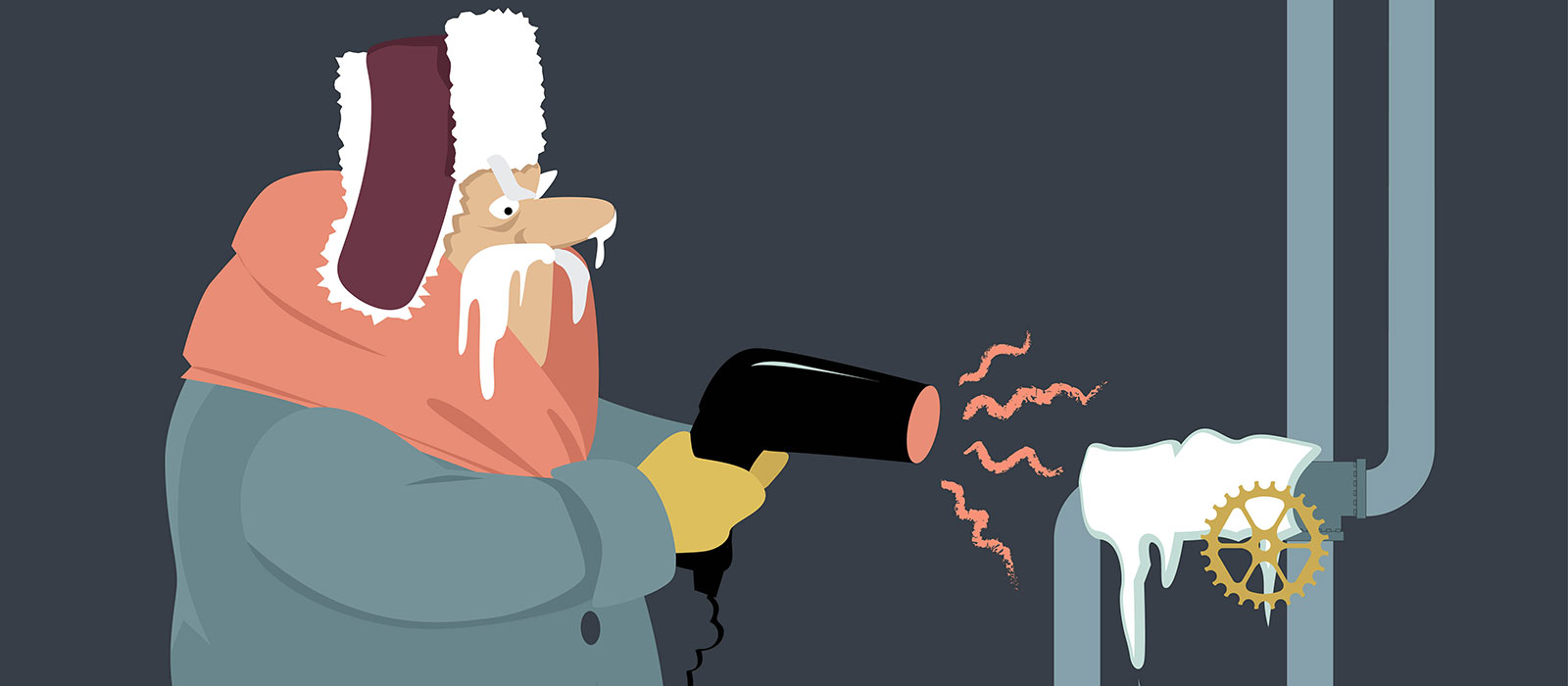Tankless Water Heaters And Cold Weather
Will my tankless water heater freeze in the winter? This is a question that comes up fairly often with customers who are looking a tanked water heater to a tankless water heater as well as those customers whom have already made the switch.
The majority of the most popular tankless water heaters on the market currently do come with a built-in defrosting feature. The eastern side of North Carolina typically does not see prolonged temperatures below freezing and the tankless units will not have an issue as long as they are installed properly, have proper freeze protection on the supply piping, and do not experience any interruptions in power or gas during the times of freezing temperatures.
If the power or gas is turned off during the time of freezing temperatures, your heat exchanger could freeze and/or burst, which would not be covered under warranty by the manufacture. However, if such an event would happen it’s fairly easy to prevent damage to the unit by simply turning off the breaker to the unit or unplugging the power cord (depends on model), closing off the isolation valves at the hot and cold inlet/outlet at the tankless water heater, and draining the unit. The directions to drain a tankless will vary somewhat depending on the brand/model of the unit you have, but in most cases this is not difficult at all. By draining the heat exchanger, you are removing the water that could potentially freeze and cause damage to the unit in the event of a power/gas outage during a cold weather event.
Every winter I receive a handful of calls from home owners whom have had other companies install their tankless units stating “my tankless water heater froze and I do not have any hot water”. Most of these calls are not from a frozen tankless water heater, but rather the supply lines or isolation valves at the heater have frozen from exposure. This is most common on outdoor units.
It is very important to make sure that the supply lines and valves have proper freeze protection. NC code requires R6.5 one inch wall pipe insulation. The insulation should be free of any gaps to prevent contact of the supply piping to the open air. Another common issue we see is that the pipe insulation does not adequately cover the isolation valves due to the size and shape of them. NCWaterHeaters.com goes beyond the code minimum for insulation on exterior mounted tankless water heaters to ensure we reduce or eliminate any potential weather related issues.
If you have experienced a problem with freezing pipes in your home or your water heater, contact NCWaterHeaters.com LLC for an evaluation. Generally, most issues with freezing plumbing in NC are problems that can be prevented with proper preparation, maintenance, and attention to detail.
Serving Raleigh and surrounding areas, NCWaterHeaters is the leading expert with tankless water heater installation, service, and repair. Give us a call for your free estimate today! (919) 868-3585

